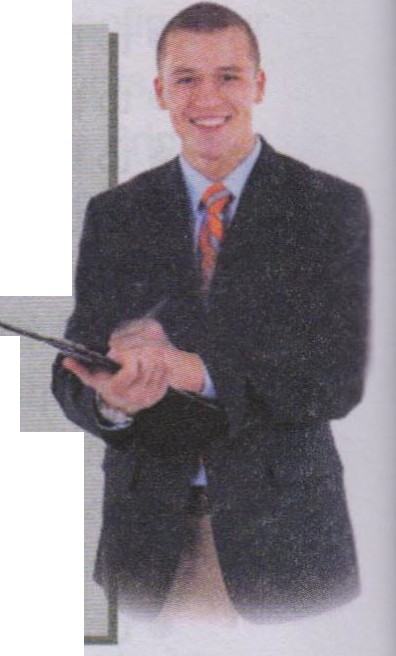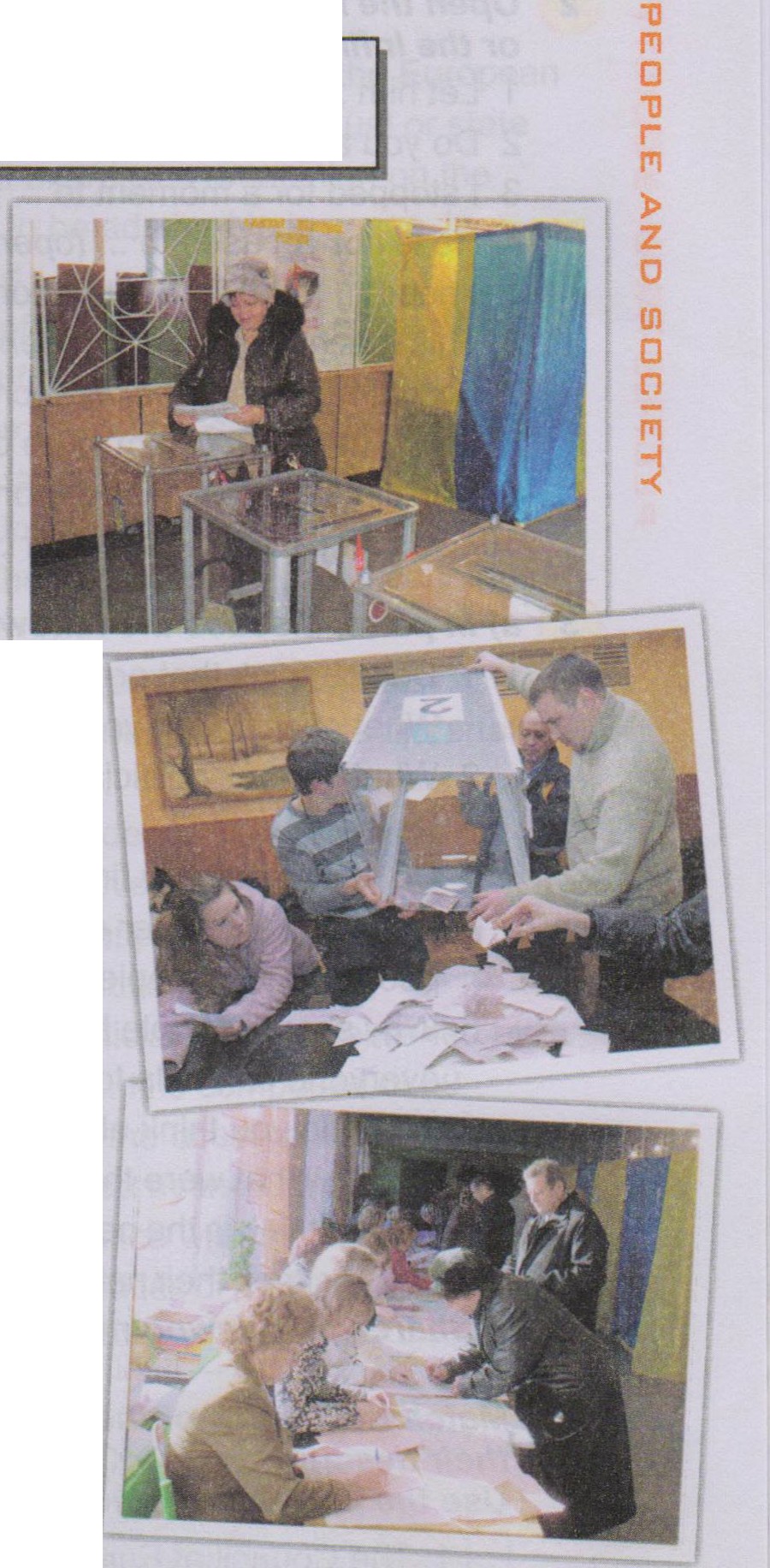
CATEGORIES:
BiologyChemistryConstructionCultureEcologyEconomyElectronicsFinanceGeographyHistoryInformaticsLawMathematicsMechanicsMedicineOtherPedagogyPhilosophyPhysicsPolicyPsychologySociologySportTourism
If you know more about this international organisation.
1 Who is the Secretary General of the UNO at the moment?
2 UNESCO is a part of the United Nations. What do these letters stand for? What is it concerned with? Where is it based?
3 UNICEF is a part of the United Nations. What do these letters stand for? What is the aim of this organisation?
4 What is the function of the UN peace-keeping force?
5 What are the permanene members of the UNO?
6 Which of the two comprises more countries: the General Assembly or
the Security Councin
Use the Internet sources to look for the information to answer the questions you didn't know.
'to pledge [pled3]- , : aaar -1 yp041-1CTY o6ii..IS'IHKY 2permanent ['p3:manant] - nocri HI-1
 SPEAKING
SPEAKING
>- 4 Read and role-play the interview.

| - |
LLI Student A,you're a Student B,you're a
u Ukrainian journalist journalist of a country
liJ who is going to that is a member of the
0interview your European Union.
z colleague from You're going to be
<(
a country that is interviewed by your
| ..J |
a. European Union. Use Use the short passages
| LLI |
a.below to ask questions . his/her questions.
• The European Union has enlarging since it was created. Since then it has grown from initial six countries to 25 and the inclusion of the central and eastern European countries was the European Union's fifth enlargement.
• In June 1993, the Copenhagen European Council laid down the criteria for accession :
1an applicant country must have achieved stability of institutions guaranteeing democracy, the rule of law, human rights, and respect for and protection of minorities ;
2it must have a functioning market economy, as well as the capacity to
cope with the competitive pressure and market forces within the EU;
3 it must have the ability to take on the obligations of membership, including adherence to the objectives of political, economic and monetary union.
•
| , |
peaceful
 and democratic Europe. The possibility of achieving this historic objective became a real prospect in November 1989 with the fall of the Berlin Wall and the break-up of the Soviet empire. This opened the way to German integration and free , democratic elections in all the central and eastern European countries .
and democratic Europe. The possibility of achieving this historic objective became a real prospect in November 1989 with the fall of the Berlin Wall and the break-up of the Soviet empire. This opened the way to German integration and free , democratic elections in all the central and eastern European countries .
• In order to help the candidate countries prepare for EU membership , the EU designed special programmes to provide assistance and promote investment. These programmes include: Phare (institution building , economic and social cohesion , industrial restructuring) , /SPA (environment and transport investment support) and Sapard (modernisation of agriculture and rural development) .
'to reconcile ['rek ansatl) -y3roro <yean.-,
1 Complete the text with the words from the box.
executive, citizens, Parliament, discussed, judicial,· election, political, vote, passport, government
VOTING IN UKRAINE
The political power in Ukraine is divided into three branches: executive, legislative and (1) .... The Verkhovna Rada, the Ukrainian (2) ... , is the highest legislative body. The (3) ... power in Ukraine belongs to the President. Both President and members of the Verkhovna Rada are elected.
The (4) ... takes place every four
years. All (5) ... of Ukraine who have reached the age of eighteen have the right to vote. But only those, who have reached the age of twenty-one, have the right to be elected to the Verkhovna Rada. The candidates to the Presidency must be not younger than thirty years of age. The candidates to the Presidency or to the Verkhovna Rada can be nominated by a political party or any other (6)
... or social organisation or even by a group of voters.
During the election campaign the candidates make their programmes public. These political programmes are widely (7) ... in the mass media and on television.
When election day comes (it is usually Sunday), the people in Ukraine go to the polls1 to elect the members of the Verkhovna Rada
or the President of Ukraine. A voter gives his name and shows his (8) .... Then he receives his ballot-paper and may go to a cubicle2 to (9) .... Voting is secret. Then the voter casts his ballot-paper in the ballot box.
Often the elections of the local (10) ... take place simultaneously with the elections to the Verkhovna Rada.
'a poll [paul] - ronocysaHHH
2a cubicle ['kju:bikl]- Ka6iHa


>-
1w-
u
Ul
z
<
w
J
N..
w
D.
USE YOUR E GLISH
2 Open the brackets and use the Gerund, the Present Participle or the Infinitive with or without 'to'.
1 Let him ... (come) again tomorrow.
2 Do you allow them ... (smoke) in here?
3 I stopped for a moment to ... (speak) to him.
4 He is not yet used to ... (operate) this machine.
5 I need ... (see) Dr Smith at once .
6 This machine needs ... (attend) to.
7 I couldn't help ... (make) such a mistake .
8 It's no use ... (tell) him to be careful.
9 Don't let it ... (fall), it's very brittle.
10 He came down to tea after ... (wash) his face .

3 a) In pairs, discuss the following questions.
1 Do you think that politicians have any effect on our everyday life?
What effect? Can you give examples?
2 What famous politicians do you know? What did they do or are doing for their people?
3 Do you personally find politics interesting? Could you go into politics?
4 Can you remember any names of philosophers who tried to teach people to live happier lives? Where did they live? What did they teach?
5 Why should people be socially conscious? Do you believe that everyone can help to make our society better?
6 What do you think about social revolutions? What revolutions do you know? What were their results?
7 Do you think in the new millennium peoples will become closer and finally
unite or keep their national integrity? Which way would you prefer? Why?
| G |
Date: 2016-03-03; view: 2267